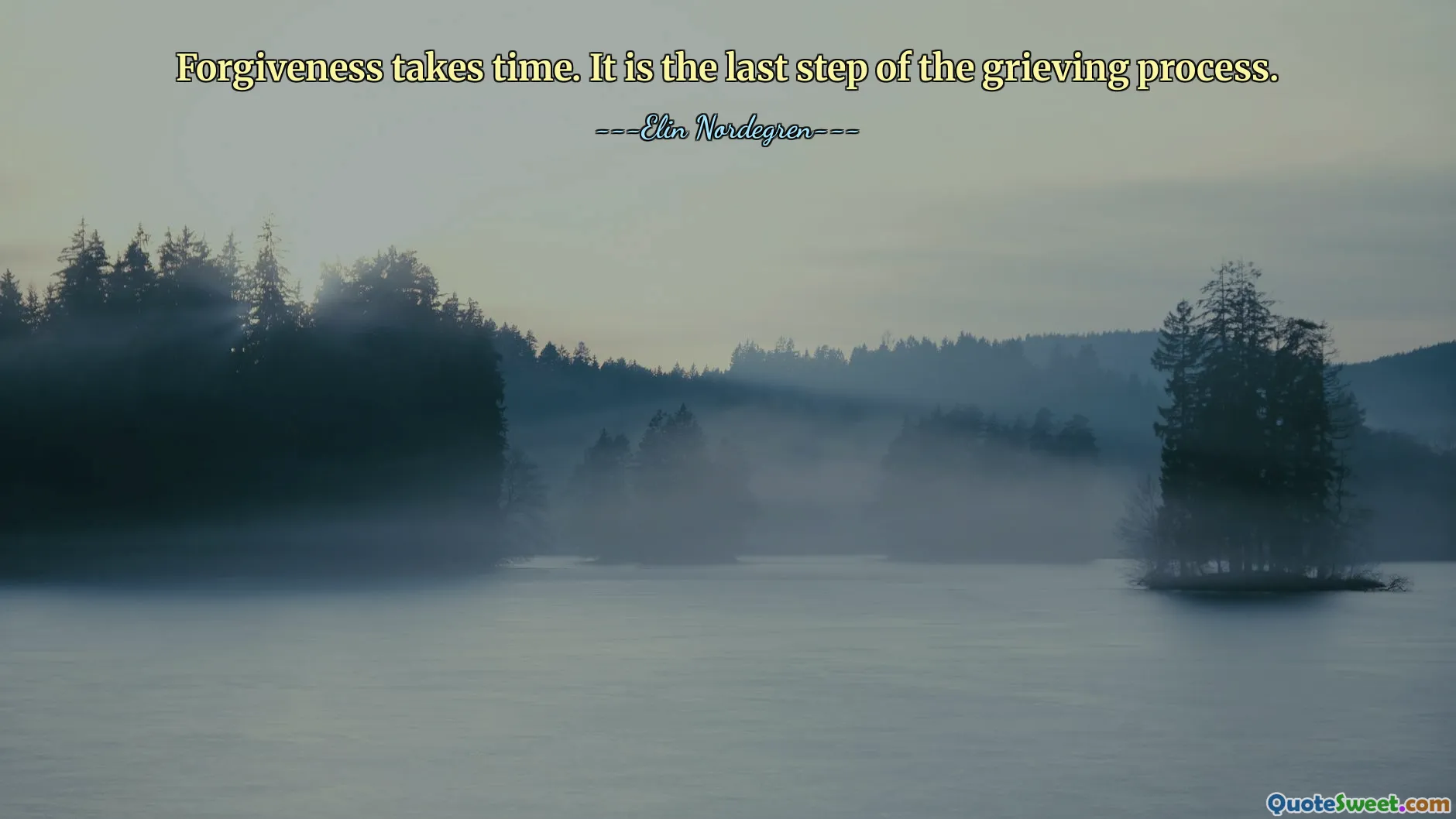
Forgiveness takes time. It is the last step of the grieving process.
The process of forgiveness is often misunderstood as a quick resolution to pain or anger, but in reality, it requires patience, understanding, and inner strength. When we experience loss, betrayal, or deep disappointment, our emotional wounds need to be acknowledged and processed. Rushing to forgive can sometimes diminish the significance of our feelings or cause unresolved resentment to fester beneath the surface. Recognizing that forgiveness is a journey allows individuals to give themselves grace as they navigate through complex emotions, gradually releasing burdens that no longer serve their well-being. The idea that forgiveness is the final step in grieving emphasizes its role as a culmination of healing—once someone has mourned their loss, accepted their pain, and moved through stages of emotional recovery, forgiveness can then be genuinely achieved. This perspective fosters compassion toward oneself, acknowledging that healing is linear and personal. It also underscores the importance of timing—there is no set schedule for forgiveness, and it often unfolds when the individual feels ready. Embracing this process can lead to genuine reconciliation, inner peace, and emotional freedom. It encourages patience both with oneself and others, permitting genuine healing to occur without forcing a resolution prematurely. Understanding forgiveness within the context of grief highlights its significance not just as an act of kindness to others but as a vital component of personal growth and emotional health.











